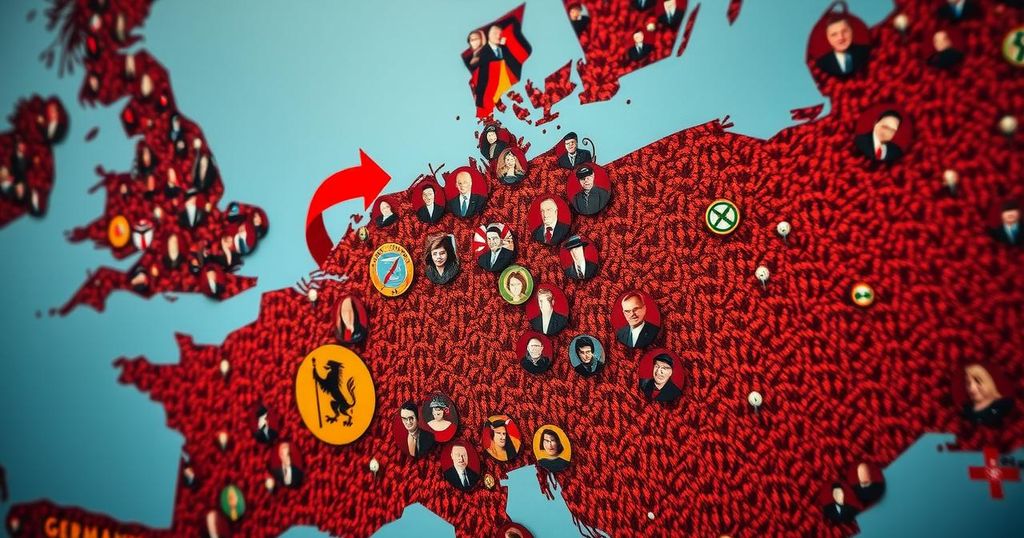Germany’s Upcoming Election: Key Issues and Political Dynamics

Germans will vote in early 2024 following the collapse of Chancellor Olaf Scholz’s coalition, driven by budget disputes between the SPD, Greens, and FDP. Polls indicate that the CDU leads at 32%, while the far-right AfD could secure 20% support. Economic concerns and upcoming foreign policy decisions remain pivotal for the electorate as candidates prepare for the challenges ahead.
In early 2024, Germans will head to the polls following the collapse of Chancellor Olaf Scholz’s coalition government comprised of the Social Democratic Party (SPD), Greens, and Free Democrats (FDP). This political upheaval comes amidst various pressing issues including the resurgence of Donald Trump, the ongoing conflict in Ukraine, and a struggling domestic economy. The coalition’s dissolution arose from serious budgetary disagreements between Scholz and the FDP’s leader, Christian Lindner, particularly regarding fiscal policy and military spending related to Ukraine. Scholz’s confidence vote is scheduled for December 16, with a subsequent election likely to be held on February 23, 2024. Polls indicate significant shifts in party standings, with the Christian Democratic Union (CDU) leading at 32%, positioning Friedrich Merz as a strong candidate for chancellor should he form a coalition with either the SPD or Greens. Meanwhile, the far-rightAlternative for Germany (AfD) is on track to achieve historic support at 20%, raising concerns amid a political environment where other parties refuse to collaborate with them. The contested landscape ahead includes crucial foreign policy decisions tied to the Ukraine conflict and the economic impact of potential new tariffs under a Trump administration, which threaten Germany’s export-driven economy. Economic discussions highlight a growing consensus among business leaders and politicians for the reform of Germany’s debt brake, which restricts public borrowing. Recent proposals by Merz indicate a shift towards a more flexible approach to national debt aimed at addressing economic stagnation, defense needs, and infrastructural demands. Overall, the upcoming elections will not only determine the leadership but could reshape Germany’s domestic and foreign policies significantly during a turbulent time.
Germany’s political landscape is at a pivotal juncture with the impending elections following the collapse of the ruling coalition. Formed after the 2021 elections, the coalition struggled with internal conflicts over fiscal spending, particularly in relation to environmental initiatives and military support for Ukraine. As the nation grapples with economic challenges exacerbated by global tensions, the election outcomes will be instrumental in addressing pressing domestic and international issues.
In summary, the upcoming elections in Germany signify a crucial moment that could redefine the nation’s political and economic trajectory. The fragmented coalition landscape, the rising influence of far-right parties, and imperative reforms to tackle economic stagnation necessitate a strategic government capable of navigating these challenges effectively. As political figures position themselves for leadership, the electorate will play a critical role in shaping Germany’s future amidst global uncertainties.
Original Source: www.aljazeera.com








